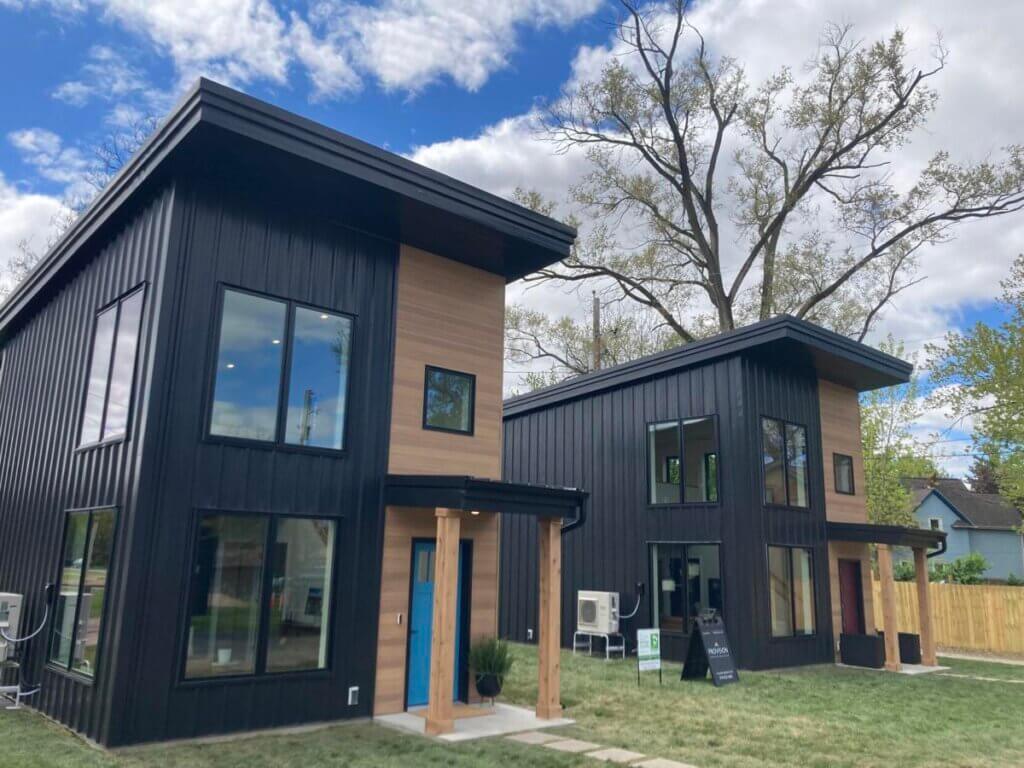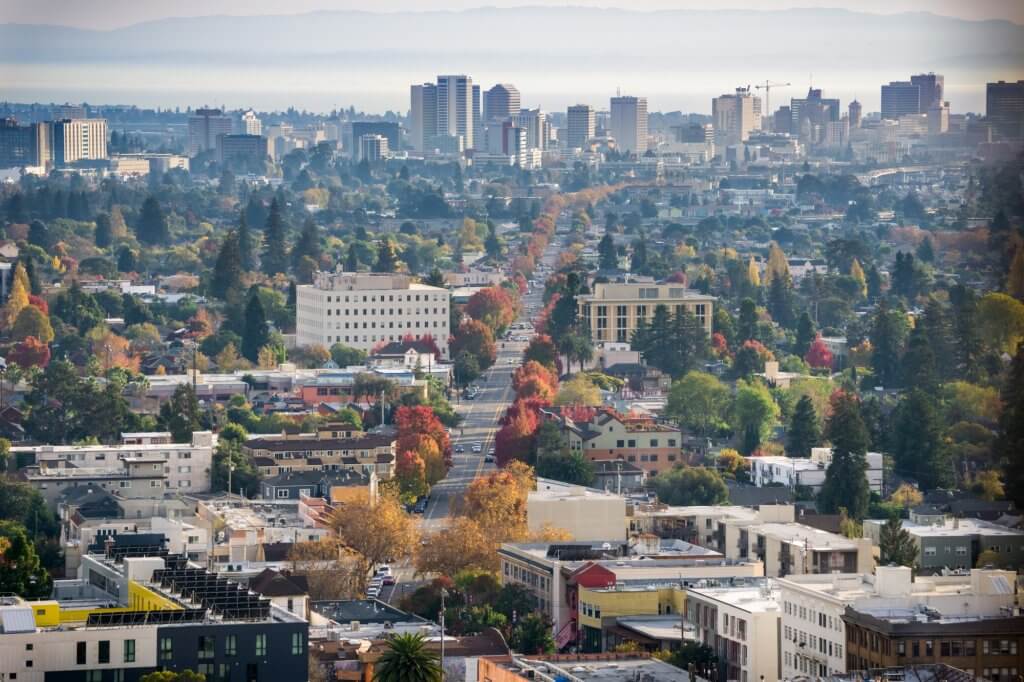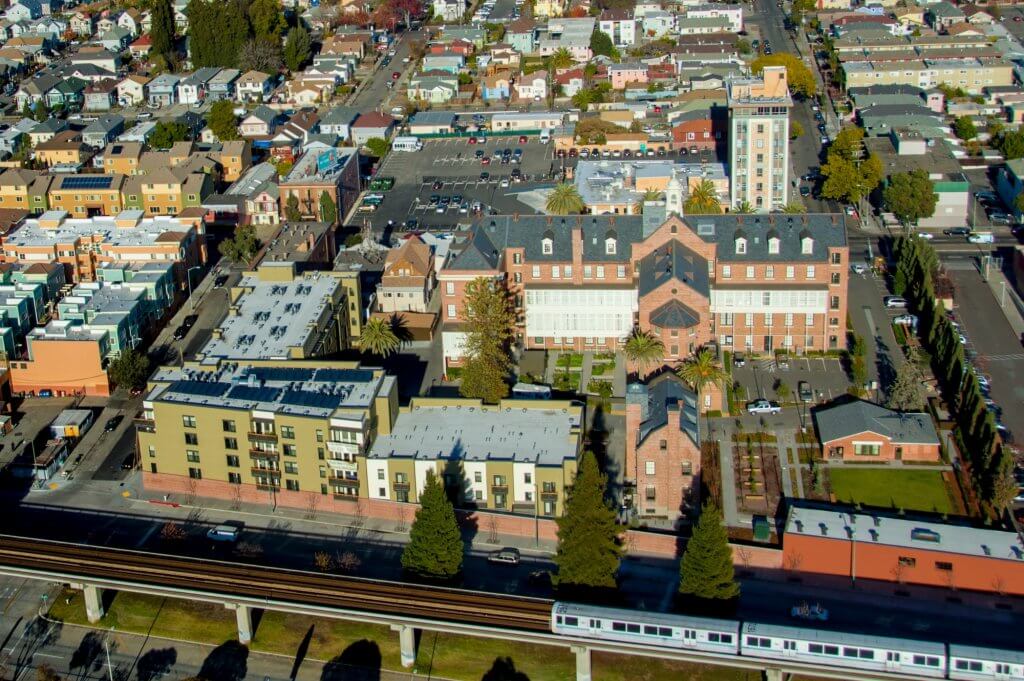After a Big 2021, Will California Deliver More Housing Wins in 2022? A Preview
Published On March 7, 2022
During the first year of the current 2021-22 California legislative session, we saw the passage of several key housing bills meant to tackle the state’s supply challenges in meaningful ways through zoning reforms and historic investments in affordable and supportive housing. While the second year of this session opened in January, we are only now getting a clearer picture of how Sacramento will approach solutions to the ongoing housing crisis during this session.
February 18th was the deadline to introduce new legislation, and dozens of new housing bills will now make their way through the committee process in the hope of final passage. Placeholder bills introduced before the deadline—also known as spot bills and gut-and-amend bills—could still be used to advance housing-related measures, so we will continue to monitor changes in legislation past the bill introduction deadline. While moving signature housing legislation forward is difficult in any year, 2022 seems to have a particularly challenging legislative environment. Specifically, once-in-a-decade statewide redistricting has created more unpredictable electoral conditions, with an unprecedented number of seats reasonably up for grabs. This is intensified by multiple notable resignations the last few months resulting in several vacancies for the Democratic supermajority this legislative session until special and November elections are decided. This makes passing contentious housing legislation difficult, as many such bills usually reach the governor’s desk by a one to two vote margin. Given the aforementioned reasons, legislators are wary of ruffling too many feathers by taking votes on high-profile bills. Given this, it is unlikely that this session will produce another signature land use bill—such as 2021’s Senate Bill 9 (Atkins).
That said, some of the proposed ideas have the potential to move the needle on the state’s housing challenges, albeit in more incremental ways. Four key themes surface: utilizing the budget surplus, taking new approaches to existing land uses, making precise and deliberate fixes to housing policy, and reintroducing previous legislation.
Utilizing the Budget Surplus
With a projected surplus of over $45 billion, we are poised to witness another year with historic levels of funding for housing and homelessness. The Governor’s budget’s proposal includes approximately $9 billion towards housing and $8 billion for alleviating and preventing homelessness.
While homelessness remains a key focus, the budget also signals the administration’s interest in increasing housing in urban centers to both address the housing crisis and meet the state’s climate goals. The budget proposes a one-time investment of $1 billion primarily focused on accelerated development in downtown-oriented areas. In addition, $300 million would go toward the Affordable Housing and Sustainable Communities program to support land use, housing, transportation, and land preservation projects for infill and compact development that reduce greenhouse gas emissions. The budget also includes $100 million for adaptive reuse incentive grants to assist in converting commercial properties to residential housing.
A variety of other investments have been proposed in affordable housing options, homelessness shelter & prevention, and infill development. The budget’s line-item breakdown has additional information. The surplus is expected to increase in the next six months while budget moves through both legislative chambers during the negotiations process that will result in the approved, final annual budget. Negotiations will possibly result in more resources being invested in housing and homelessness in the final state budget iteration.
Taking New Approaches to Existing Land Uses
A couple of prominent bills seek to make it easier to build housing on existing sites, such as school lands and commercially-zoned land. Based on the first-of-its-kind inventory of potential sites for education workforce housing at the K-12 level, Assemblymember Bloom introduced AB 2295 (2022). AB 2295 would remove the administrative barriers that can hinder housing production on surplus school land, creating a pathway for by-right affordable housing production for teachers and students. Approximately 75,000 acres of land, roughly the size of 5 Manhattans, are controlled by local education agencies—making this a potentially important source of land for workforce housing for teachers and employees. And in response to UC Berkeley having to cap student admissions this year, Senator Wiener introduced SB 886 (2022), which would provide a CEQA statutory exemption for student housing on University of California, California State University, and California Community Colleges campuses.
SB 1369 (2022), introduced by Senator Wieckowski, would create statewide adaptive reuse standards, modeled after Los Angeles’ existing adaptive reuse ordinance. Our 2021 report credited adaptive reuse ordinances in Los Angeles in Santa Ana for catalyzing conversions of offices to residential uses in those cities, and a statewide application of these principles could be important for replicating this approach in more places. Moreover, this bill may align with the Governor’s budget proposal of $100 million to finance adaptive reuse projects. In a similar fashion, SB 6 (Caballero, 2021), which allows for residential development on commercially-zoned properties statewide, is still alive after being shelved in the Assembly in the first year of the session. Our analysis has found that legislation such as SB 6 could be important in creating a baseline level of allowed development on commercial land throughout the state.
Making Precise and Deliberate Fixes to Housing Policy
Dozens of bills take a more targeted approach by proposing specific reforms to existing housing policies and processes, including impact fees, density bonus law, permitting, ADU requirements and tenant protections. Our research has highlighted the potential of reducing and deferring impact fees to increase housing production, finding that fees can add up to over $100,000 per housing unit. Assemblymember Grayson introduced a bill related to impact fees, AB 2186 (2022). The bill would encourage cities and counties to waive or reduce impact fees for affordable rental housing developments by reimbursing 50 percent of the value of fee waivers or reductions granted to qualified affordable housing developers.
Introduced by newly-appointed Assembly Housing Chair, Assemblymember Wicks, AB 2334 (2022) would expand the application of the state’s affordable housing density bonus law to allow unlimited density bonus for affordable housing in low vehicle miles traveled (VMT) areas. Assemblymember Bloom’s two-year bill, AB 682 (2021), would also expand density bonus law by providing regulatory relief to developers for cohousing buildings. Previous Terner Center work has found that California’s density bonus law is overdue for reform given how infrequently it is used across the state.
One of the state’s more successful recent housing production efforts has been the successive bills focused on Accessory Dwelling Unit (ADU) production, and 2022 may see more progress on this front with SB 897 (2022). Senator Wieckowski’s bill would increase ADU height limits to 25 ft and provide additional changes to help with production and financing. A first of its kind ADU owner survey from the Center for Community Innovation at UC Berkeley found that across the state ADUs can be an important source of affordably priced housing, as ADUs generally rent at prices affordable to households earning 80 percent of the Area Median Income (AMI) or less. Increasing the height requirement would allow for two-story ADUs, giving families access to a more affordable form of housing.
Many projects spend months waiting for basic permits to be approved by cities and counties, which can add to the cost of development. Assemblymembers Robert Rivas and Grayson introduced AB 2234 (2022) to make public an online checklist of building permit applications and to provide updates on each application’s status. Under the proposed law, if city staff cannot meet the post-entitlement permitting deadlines, local jurisdictions would have a no-cost option to contract with 3rd parties to reduce the time needed to complete post-entitlement permits.
AB 1850 (2022) introduced by Assemblymember Ward would create new guardrails around the nascent practice of Joint Power Authorities (JPAs) purchasing existing multifamily buildings and deed-restricting units for low- and moderate-income households in exchange for property tax exemptions.
Finally, as for tenant protections under consideration this legislative session, Assemblymember Muratsuchi’s AB 2240 (2022) would expand the Tenant Protection Act of 2019 to provide just cause evictions to people living in mobile homes. Residents of mobile homes are not protected from substantial rent hikes and unjust evictions, disproportionately impacting low-income residents.
Reintroducing Previous Legislation
A handful of big housing ideas are returning this year despite not moving forward in previous sessions. For example, Assemblymember Wicks has reintroduced a statewide rental registry, AB 2469 (2022), and security deposit reform, AB 2297 (2022). Assemblymember Friedman has introduced a new version of a 2021 bill, AB 2097 (2022), which would eliminate parking minimums for developments constructed within half a mile of frequent transit. This bill would have significant implications for the cost of building new homes, as our work has shown that each parking space can cost up to $35,000 per unit. Finally, Assemblymember Lee has reintroduced the Social Housing Act, AB 2053 (2022), which would create the California Housing Authority (CHA) to produce and acquire social housing for people at all income levels.
As always, the Terner Center will continue to monitor legislative activity and provide data and analysis to inform the conversation. Below are links to the legislative text of the bills we are watching. If a bill mentioned in this piece was misinterpreted, we welcome your feedback. Please send a friendly email to muhammadalameldin@berkeley.edu.
- AB 889 (Gipson) — a corporation or limited liability company that owns real property for rent or lease would be required to report it to the state
- AB 916 (Salas & Quirk-Silva) — would restrict public hearings for certain projects in existing residential units and increases the ADU height limit to 18 ft if located near an existing multifamily and multistory building
- AB 1001 (Garcia) — would require mitigation for environmental impact on air and water quality issues identified in an environmental impact report to be addressed directly in affected disadvantaged communities
- AB 1056 (Grayson) — California’s Department of Housing and Community Development (HCD) and California Infrastructure and Economic Development Bank would invest in the building of housing through off-site industrialized construction methods housing to quickly address homelessness, wildfires, COVID-19, or other emergency housing situations
- AB 1206 (Bennett) — would offer a tax break for low-income units included in limited equity housing cooperatives
- AB 1288 (Quirk-Silva) — would allow state Low-Income Housing Tax Credits to be used with 4 percent or 9 percent credits
- AB 1445 (Levine) — starting in 2025, the Regional Housing Needs Allocation (RHNA) process would be required to take climate change into consideration, particularly evacuation routes from climate disasters for new homes built
- AB 1602 (McCarty, Cervantes, Medina, Ting) — Also known as the California Student Housing Revolving Loan Fund Act of 2022; would invest $5 billion of the state’s budget to develop student housing on or near public institutions of higher education through agreements with participating nonprofit entities
- AB 1719 (Ward) — would expand the Teacher Housing Act of 2016 to include housing for community college faculty, district employees, and current/former foster youth
- AB 1748 (Seyarto) — would add to the definition of “exempt surplus land,” surplus land that is zoned for a density of up to 30 residential units and is owned by a city or county that is reaching or surpassing RHNA numbers
- AB 1816 (Bryan) — would create a Reentry Housing & Workforce Development Program to house and support formerly incarcerated people by providing housing assistance, supportive services, and workforce development programming
- AB 1910 (Garcia) — would provide grants to local agencies that convert publicly-owned golf courses into affordable housing and publicly accessible open space
- AB 1911 (Gabriel) — would create a new Affordable Housing Preservation Tax Credit to preserve existing affordable apartment properties and mobile home parks, providing a credit against state and federal capital gains when a property owner sells to a nonprofit entity that will operate the property as affordable housing
- AB 1933 (Friedman) — would provide a full property tax exemption for land owned by a nonprofit organization that will be used to build homes for low- to moderate-income, first-time homebuyers
- AB 2006 (Berman) — would streamline the state’s compliance monitoring system to eliminate duplication and reduce costs by directing one entity to manage this activity
- AB 2013 (Quirk-Silva) — would establish the Legislative Task Force on the California Master Plan on Homeownership which would submit a report to the legislature no later than March 31, 2023 offering recommendations and evaluating the barriers to increase homeownership rates across the state
- AB 2049 (Villapudua) — would establish the State Land Affordable Housing Infrastructure, Demolition, Abatement, and Remediation Fund to provide grants for affordable housing development on state land upon appropriation
- AB 2063 (Berman) — would prohibit affordable housing impact fees—including inclusionary zoning fees, public benefit fees, and in-lieu fees—from being imposed on a housing development’s density bonus units
- AB 2094 (Robert Rivas & Quirk-Silva) — would require a city or county Annual Progress Report to include progress in meeting the housing needs of Extremely Low-Income households
- AB 2166 (Mayes) — HCD would prioritize 30 percent of the federal funding provided under the Community Development Block Grant Program to promote low or moderate income homeownership. At least 10 percent of program funds would go towards down payment assistance
- AB 2170 (Grayson) — would give owner-occupants and public entities a “First Look” at purchasing bank-owned properties and would prohibit “bulk sales” of foreclosed homes
- AB 2203 (Luz Rivas) — would prohibit landlords from requiring a credit report if a prospective tenant receives a government rental subsidy
- AB 2211 (Ting) — would make amendments to the “shelter crisis” declaration, applicable to jurisdictions if its number of unsheltered persons exceeds the national average;would streamline shelter construction on private land with alternative building codes
- AB 2233 (Quirk-Silva) — would establish the Public Housing Loan Fund which would make loans to localities to build public housing on public land
- AB 2305 (Grayson) — would establish the Coordinated Affordable Housing Finance Committee and require HCD, California’s Housing Finance Agency (CalHFA), and California’s Tax Allocation Committee (TCAC) to allocate funding through a single process
- AB 2325 (Luz Rivas) — would require a state working group to accomplish specific goals related to ending homelessness by 2023
- AB 2357 (Ting) — would require HCD to maintain a website listing of all entities, including housing sponsors, that have notified the department of their interest in surplus land for the purpose of developing low- and moderate-income housing
- AB 2383 (Jones-Sawyer) — would make it a discriminatory practice to ask prospective tenants for a criminal record at the initial application phase for a rental unit
- AB 2386 (Bloom) — would specify that any multifamily property held under tenancy in common is subject to an exclusive occupancy agreement
- AB 2439 (Bloom) — would allow the DMV to lease lands owned by the entity to develop affordable housing
- AB 2445 (Gallagher) — would require a person filing a CEQA lawsuit against an affordable housing project to post a $500k bond to cover the damages in case they lose the case;the judge can adjust or waive the bond requirement upon good cause
- AB 2446 (Holden) — would require the State Energy Resources Conservation and Development Commission to produce a framework to reduce the carbon intensity in new building construction with a goal of 80 percent reduction by 2045
- AB 2483 (Maienschein) — would award points through the Multifamily Housing Program to project applicants that agree to set aside at least 25 units for individuals that are either experiencing homelessness or in need of all-inclusive elderly care
- AB 2513 (Grayson) — would task the Department of Insurance with the creation of a state program to reduce the cost of construction defect liability insurance
- AB 2527 (Quirk-Silva) — would prohibit credit report requirements for prospective renters
- AB 2531 (Grayson) — would require local jurisdictions to create a website landing page that lists the fees, exactions, affordability requirements, etc. related to a development
- AB 2547 (Nazarian) — would offer competitive grants to nonprofit community-based organizations, continuums of care, and public housing authorities to administer a housing subsidy program for older adults and persons with a disability that are experiencing / at-risk of homelessness
- AB 2559 (Ward) — would allow tenants to provide one reusable screening report for multiple properties to save on application fees
- AB 2569 (Nguyen & Valladares) — would convene a working group to oversee funding to services related to individuals experiencing homelessnessand to provide findings/recommendations to Legislature on January 1, 2024
- AB 2619 (Patterson) — would lift the six-person capacity limit for elderly residential care facilities if there is sufficient square footage on the property
- AB 2630 (O’Donnell) — would require each city and county that has used funds from any source to address homelessness to submit a report to the state
- AB 2713 (Wicks, Bloom, and Grayson) — would strengthen just cause eviction protections by revising the requirements for evictions in cases where the owner plans to move into the unit, perform substantial renovations, or take the housing unit out of the rental market
- SB 490 (Caballero) — would establish the Housing Acquisition and Rehabilitation Technical Assistance Program to provide technical assistance for acquisition-rehabilitation projects
- SB 513 (Hertzberg) — would develop and administer a program to award grants to homeless shelters for the provision of shelter, food, and basic veterinary services for pets owned by people experiencing homelessness
- SB 649 (Cortese) — would allow jurisdictions to create local preference policies for affordable housing developments to local residents at risk of displacement
- SB 843 (Glazer) — would raise the state’s existing renters’ tax credit from $60 to $1000
- SB 847 (Hurtado) — would create a grant program for landlord COVID-19 relief paired with the COVID-19 Tenant Relief Act
- SB 914 (Rubio) — would require cities, counties, and continuums of care receiving state funding to collect data on homeless domestic violence survivors and their children; would require California’s Interagency Council on Homelessness to set and work toward a goal of no unhoused domestic violence survivors and children by 2025
- SB 948 (Becker) — would prohibit HCD from requiring a project-specific transition reserve for affordable housing and creates a state Pooled Transition Reserve Fund that would continuously appropriate funds to mitigate the impacts on tenant rents from the loss or exhaustion of rental or operating subsidies
- SB 1067 (Portantino) — would eliminate parking minimums near public transit if 75 percent of the units are occupied by low- and very low-income households, older adults, or people with disabilities if the developer shows the development will not negatively impact traffic
- SB 1083 (Skinner) — would expand CalWORKs to provide immediate assistance to families who have received any notice that would lead to an eviction; would require CalWORKSto provide temporary shelter to a pregnant person during and after pregnancy
- SB 1105 (Hueso) — would establish a San Diego Housing Finance Authority
- SB 1176 (Limon) — would establish a California Community Reinvestment Act and expands regulations to nonbanks, credit unions, and mortgage lenders to lend in low- to moderate-income communities
- SB 1292 (Stern) — would remove state-mandated 4 foot setbacks for ADUs and allows local discretion on approval
- SB 1335 (Eggman) — would prohibit landlords from requiring a credit report if a prospective tenant receives a government rental subsidy
- SCA 2 (Allen & Wiener) — would place a 2024 ballot measure to repeal Article 34—which requires voter approval for increasing affordable housing production at the local level—of the California Constitution





